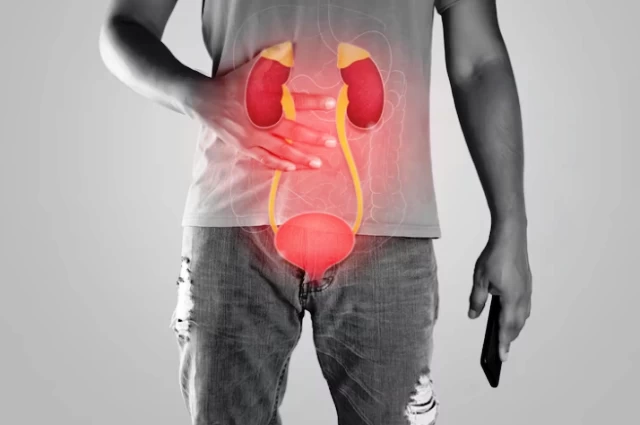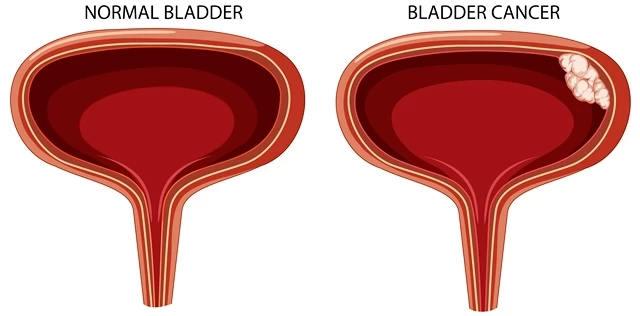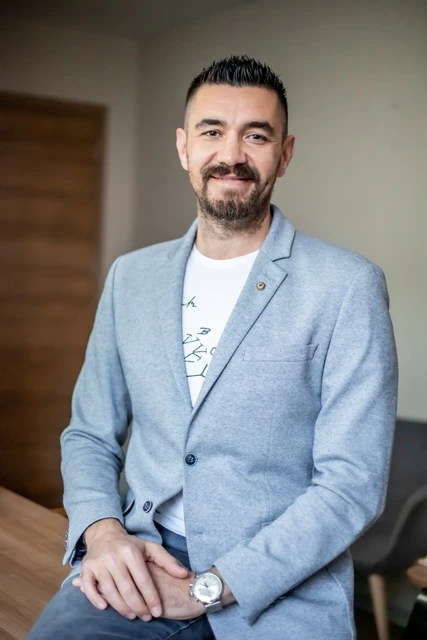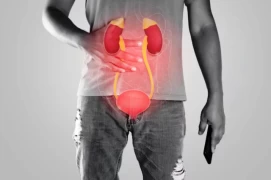
Bladder Cancer - Part 2: Treatment, Prevention, and Care Methods
- Bladder Cancer - Part 2: Treatment, Prevention, and Care Methods
- Treatment Options for Bladder Cancer:
- Prevention Methods for Bladder Cancer:
- Post-Treatment Care Methods for Bladder Cancer:
Bladder cancer is a type of cancer that usually begins in the inner lining of the bladder, resulting from uncontrolled growth of cells. This type of cancer is widespread globally and is more commonly found in males compared to females. Bladder cancer is associated with specific risk factors, genetic factors, and various environmental factors.
In this final part of my two-part series on "Bladder Cancer," we will explore the treatment options, prevention methods, and post-treatment care of bladder cancer. Happy reading...
Treatment Options for Bladder Cancer:
The treatment plan for bladder cancer is determined based on the stage, type, overall health condition, and other individual factors. Treatment often involves a combination of one or more methods. Bladder cancer treatment options include:
- Surgical Intervention:
- Transurethral Resection (TUR): An endoscopic surgical method used for the removal of small, non-advanced tumors.
- Radical Cystectomy: The complete or partial removal of the bladder. The surgeon removes the bladder, surrounding lymph nodes, and other relevant tissues.
- Radiation Therapy: Application of high-energy rays to the bladder cancer. This method helps shrink or control the tumor.
- Chemotherapy: Inhibiting the growth and multiplication of cancer cells using drugs. Chemotherapy is a systemic treatment and is often used before or after surgery or radiation therapy.
- Immunotherapy: A treatment method used to boost the immune system. It is particularly employed in cases that may progress or recur.
- Targeted Therapies: Specific drugs targeting genetic factors can be used in certain types of bladder cancer. This treatment directly targets cancer cells.
- Intravesical Therapy: In this method, drugs affecting cancer cells are directly placed into the bladder. This is commonly used in the treatment of superficial but potentially progressing tumors.
The treatment plan is determined based on the patient's overall health, the stage and type of cancer. A multidisciplinary approach is often preferred, involving collaboration between urologists, oncologists, radiation specialists, and other healthcare professionals. Follow-up care and rehabilitation after treatment are also critical for the long-term health of the patient.

Prevention Methods for Bladder Cancer:
To prevent bladder cancer, it is important to control specific risk factors and adopt a healthy lifestyle. Additionally, certain care measures should be taken to maintain the health of individuals diagnosed with bladder cancer and prevent its recurrence. Here are the prevention and care methods for bladder cancer:
- Avoiding Smoking and Secondhand Smoke: Smoking can increase the risk of bladder cancer. Therefore, avoiding smoking and staying away from secondhand smoke are crucial.
- Avoiding Chemical Exposure: Industrial chemicals and agricultural pesticides that can increase the risk of bladder cancer should be avoided. Protective measures should be taken in workplaces where exposure to chemicals occurs.
- Good Urinary Hygiene: Good urinary hygiene is important for preventing urinary tract infections, which can increase the risk of bladder cancer.
- Healthy Eating Habits: A balanced diet supports overall health. A nutrition plan including vegetables, fruits, whole grains, and low-fat protein sources is recommended.
- Regular Exercise: Physical activity improves overall health and prevents obesity. Obesity is a condition that increases the risk of bladder cancer.
- Adequate Water Consumption: Drinking enough water helps maintain urinary tract health and prevents urinary tract infections.
Post-Treatment Care Methods for Bladder Cancer:
- Regular Follow-up Examinations: Regular follow-up and cystoscopy examinations after bladder cancer treatment are important for monitoring the patient's health and detecting signs of potential recurrence.
- Smoking Cessation and Healthy Lifestyle Habits: Individuals diagnosed with bladder cancer should seek support to quit smoking and adopt healthy lifestyle habits.
- Immunotherapy and Other Treatments: If there is a high risk of bladder cancer recurrence, considering specific treatments such as immunotherapy is advisable.
- Psychosocial Support: The diagnosis and treatment of bladder cancer can have emotional and psychological effects on patients. Psychosocial support helps both the patient and their family during this process.
- Urinary Control and Urinary Tract Health: After bladder cancer treatment, paying attention to urinary control and maintaining urinary tract health is important.
Preventive measures and care methods help reduce the risk of bladder cancer and preserve post-treatment health. Regular communication with a healthcare professional monitoring the disease assists individuals in taking personalized precautions based on their specific condition.
Stay healthy...

Dr. Burak Yavuz Kara
Urology Specialist





